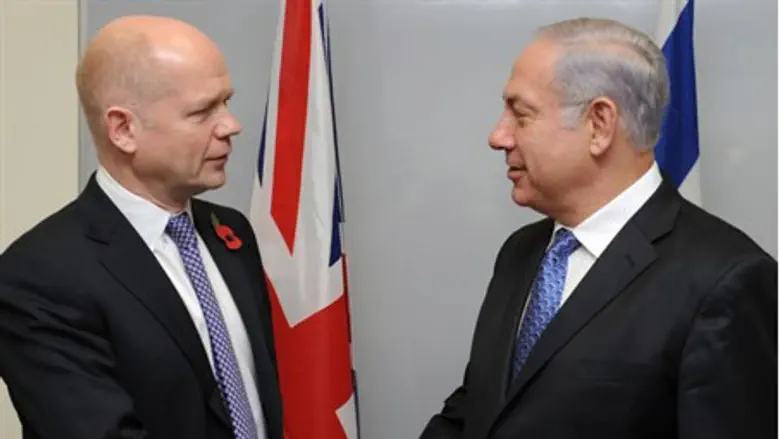
Israel is not obligated by the deal with Iran, Prime Minister Binyamin Netanyahu said over the weekend – but if by “not obligated” he means that Israel is considering taking on Iran alone, said British Foreign Minister William Hague, Jerusalem should think again.
Speaking in Parliament Monday, Hague specifically called out Israel and others who are unhappy with the Iran deal, calling on them “to refrain from actions that could damage implementation” of the agreement to limit Iran's uranium enrichment program.
Although there has been no sign that action against Iran is being organized by anyone, Hague said, his government had already contacted the relevant parties to make clear its position on the matter.
Earlier, French Foreign Minister Laurent Fabius said he did not believe that Israel would attack Iran alone.
Besides Israel, Saudi Arabia and the Gulf states are unhappy with the Iran deal. In a statement Monday, Riyadh expressed very limited support for the deal, saying that it could be a first step to a more comprehensive agreement – if Tehran showed good faith, that is.
On Sunday, the Saudis warned that if, despite the agreement, Iran continued with its development of nuclear weapons, it would set off a nuclear arms race in the Middle East, as many of the Gulf states would be likely to want to acquire nuclear weapons to protect themselves.
Speaking over the weekend, Netanyahu said that Iran “got the deal of the century and the international community got a bad deal, this is a very bad deal. Israel utterly rejects it," he said, "Israel is not obligated by this agreement and Israel will do everything it needs to do to defend itself and the security of its people.”
Many aspects of the agreement have not been finalized, but among its highlights is an agreement by Iran to freeze for a six month period some of its nuclear activities in exchange for partial and limited relief of the sanctions that have been imposed on it. The lifting of those sanctions is expected to pump between $4 and $5 billion into the Iranian economy. In addition, Iran will be allowed to continue to enrich uranium to a level 3.5%, but will not be allowed to add to its stockpile of enriched uranium, and would have to move some of its enriched material to a third country.